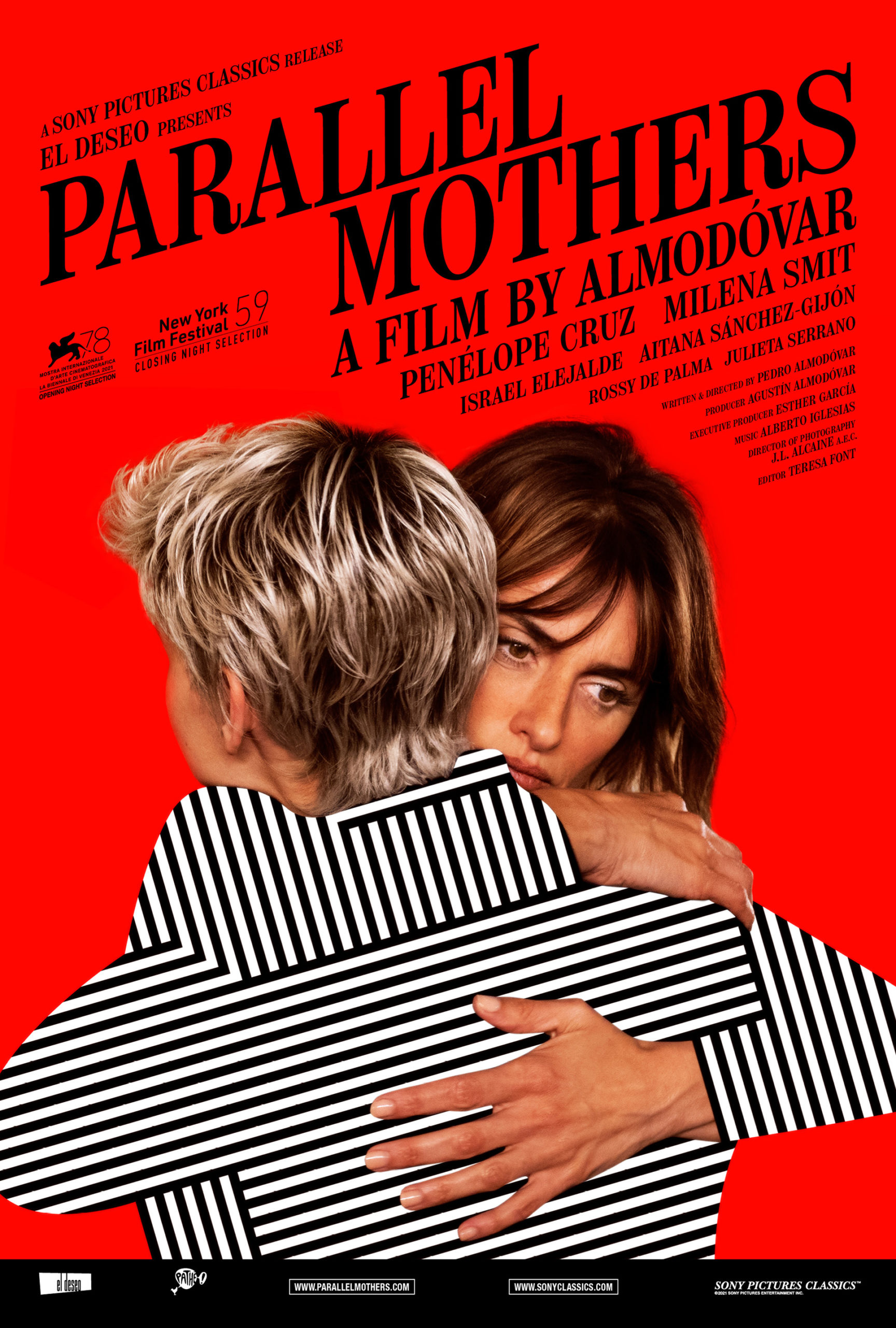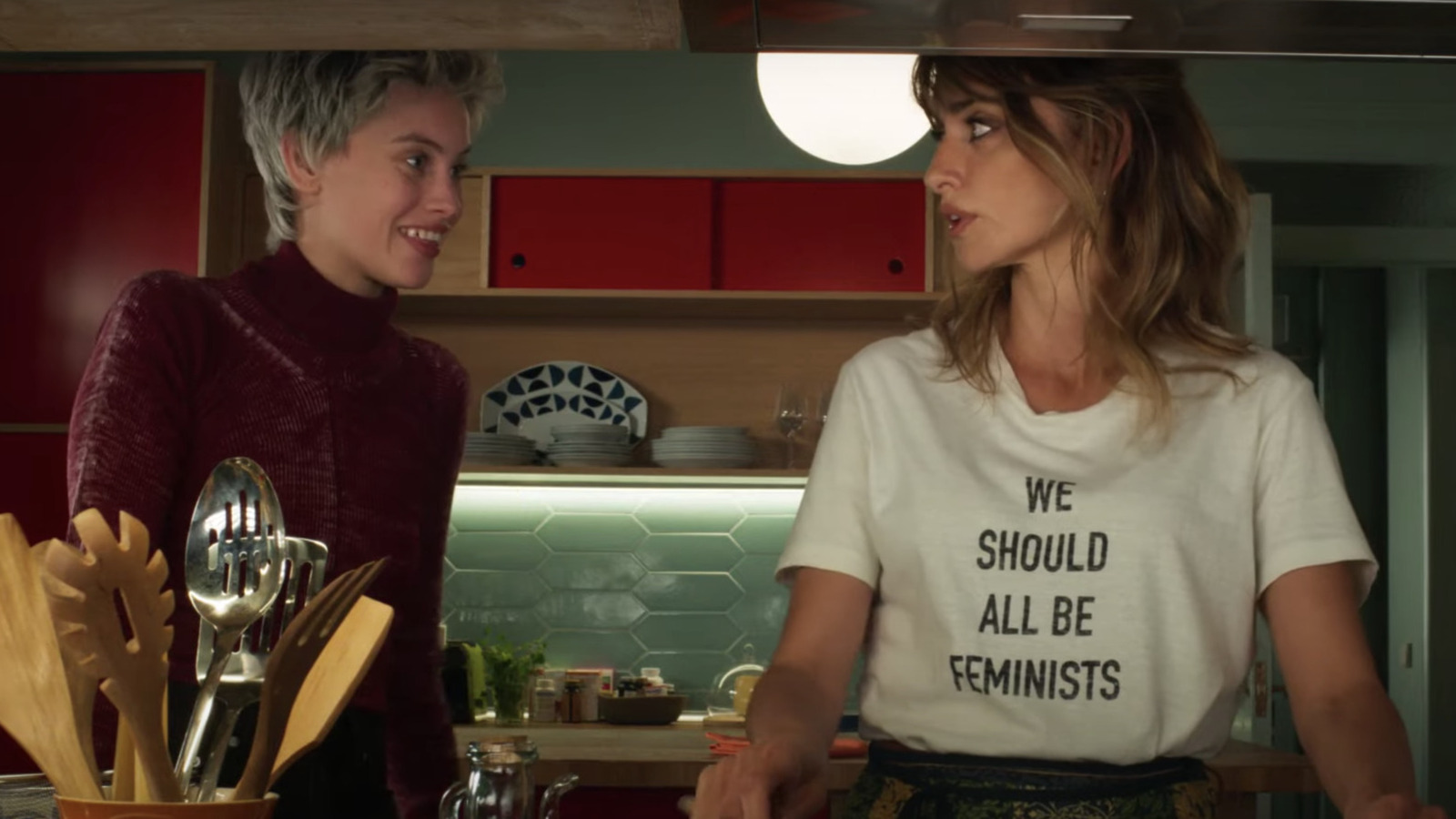Parallel Mothers
Madres Paralelas (Parallel Mothers) FL, 2021, 3 ¼ stars
The mother of male directors
Almodóvar embraces his inner feminist again
 Exclusive to MeierMovies, January 10, 2022
Exclusive to MeierMovies, January 10, 2022
“How do you write women so well?” a fan asks author Melvin Udall (Jack Nicholson) in James L. Brooks’ As Good as It Gets. “I think of a man, and I take away reason and accountability,” he answers.
In real life, it’s Spanish writer-director Pedro Almodóvar who should be asked. And I’m certain his response would be the antithesis of Udall’s snark. In fact, Almodóvar even has a name for his art: “cinema of women.”
Adriana Ugarte, who starred in the director’s 2006 film Julieta, perhaps explained it best. “It’s a mystery, but he can feel how we feel and how we are,” she said, as quoted in The New York Times.
Of course, untold numbers of male directors and writers have created wonderful parts for women, and as have women for men. But what’s extraordinary about Almodóvar is that so many of his films have featured almost exclusively women in the lead roles. His latest, Madres Paralelas (Parallel Mothers in English), is one of the strongest examples of this female-centric sensibility.
The two at the heart of the film are Almodóvar’s muse, Penélope Cruz, as Janis, and Milena Smit as Ana. Though the two are separated by about 20 years, they find themselves in similar predicaments – and identical hospital rooms – giving birth to unplanned babies. But what could have been a ships-passing-in-the-night moment eventually grows into an unlikely friendship when they meet again under extraordinary circumstances. Their new bond involves enough insanity to remind one of another Udall quote from the aforementioned Brooks movie: “Sell crazy someplace else. We’re all stocked up here.”
In supporting roles are Aitana Sánchez-Gijón as Ana’s mother and Israel Elejalde as the married man who impregnates Janis. While the former is involved in an only intermittently successful subplot involving her acting career, the latter lends the film a deeper meaning by virtue of his anthropological work. He and Janis are working on locating lost graves of Spain’s White Terror, during which Francisco Franco murdered close to 200,000 people in the 1930s and 1940s. An entire generation of women lost husbands and sons, or knew someone who did. And in keeping with Almodóvar’s feminist leanings, Janis wants to bring peace to the few remaining women of that era, and herself. And in a complement to the Franco metaphor, we’re reminded that Ana’s pregnancy came through rape.

Penélope Cruz, right, and Milena Smit star in Parallel Mothers. (image copyright El Deseo / Sony Pictures Classics)
The film, therefore, alternates between a soap opera of motherhood and a drama of historical recognition. But regardless of which plot is taking center stage, the film is focused on unearthing hidden truths and examining the closure those truths can bring. “Who am I, where did I come from, and where am I going?” the characters seem to be asking themselves, and us.
The movie suffers narrative drift about halfway through, with several scenes landing neither a dramatic nor comedic punch. In this respect, it’s a tiny step below Almodóvar’s previous feature, Pain and Glory. That film too featured Cruz, along with a powerhouse turn by Antonio Banderas, but it was better able to sustain its momentum. Parallel Mothers, for all its compelling qualities, lacks that consistency. Nevertheless, Cruz and Smit are strong enough to right the cinematic ship in its final act, buoyed by the intriguing directions of the twisty script. The film’s waters become a tad muddied, but they run deep.
“We should all be feminists,” reads a shirt worn by Janis. If you, like I, believe Hillary Clinton’s reaffirmation that “women’s rights are human rights,” Janis’s shirt might be moot, or even overbearing. Nevertheless, the shirt seems appropriate for Janis, and for the film. Heck, I can almost picture Almodóvar squeezing all allegedly 185 pounds and five feet, 10 inches into la camisa himself. And, somehow, it’s a damn good fit. Se ve hermoso.
© 2022 MeierMovies, LLC
For more information about the film, see IMDB and Wikipedia.